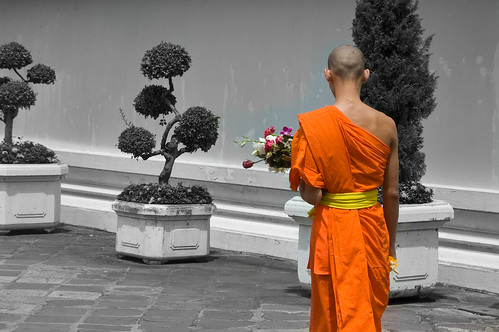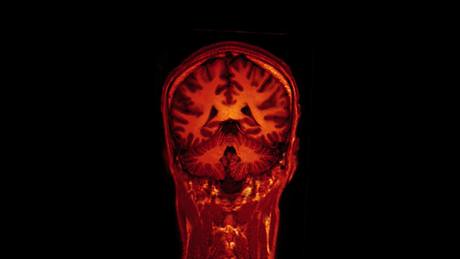
Though the book I have recently finished reading,
Why God Won't Go Away, was published in 2001, I feel like the subjects it deals with are worth revisiting every once in a while. Here's the basic setup:
Two neuroscientists (Andrew Newberg and Eugene D'Aquili) are curious what's going on in a human brain during mystical experiences. From measuring the brain during deep Buddhist meditation and deep Christian prayer, they come to realize that the brain is capable of (at least temporarily) shutting off the ego, and losing the "self," creating a sensation of becoming one with God, or Atman, or experiencing Nirvana. There are endless names for the exact experience, but they all hold similar characteristics. These moments of mystical experience, to the monks and nuns being studied, are at least as real, if not more real, than everyday waking life. And it is because our brains experience something that we perceive them as "real."
Also examined are the biological roots of myth, the underlying social function of religion and ritual, and the exact neurobiological processes which cause the brain to experience the loss of self.
For all my skepticism about the truth of religion, this book, from a scientific perspective (specifically, a neurological perspective), does much to reassure the reader about the unifying and transcendent aspects of religion. There is also much said about the conflicting natures of science and religion, fact and faith. To put it as the authors do: "All that is real can be verified by scentific measurement, therefore, what can't be verified by science isn't really real." This presents a problem when you are able, with science, what can only be perceived with faith.
I ended the book feeling what I felt as I went into reading it: that science is the human means by which people discover the beauty and mystery of whatever underlying force may be out there. Again, to quote Newberg and D'Aquili: "...if we understand the metaphorical nature of [science and religion's] insights, then their incompatibilities are reconciled, and each becomes more powerfully and transcendentally real."
 Not long after my last blog post I was sitting in my car listening to NPR with my little sister. A piece came on discussing neuroscience, religion, and the link between the two. It was part of a series of reports by Barbara Bradley Hagerty, NPR's Religion correspondent, and a former colleague of mine. Barbara is a wonderful reporter and her new book, out on many of the same topics as the book I just reviewed, is out now. She also did a week-long series of reports, which are pretty fantastic. I haven't read the book just yet, but I am eager to find out about what her website describes as " a small moment as an adult" which "triggered a revaluation of her beliefs, which in turn led her to a new way of thinking about God and faith."
Not long after my last blog post I was sitting in my car listening to NPR with my little sister. A piece came on discussing neuroscience, religion, and the link between the two. It was part of a series of reports by Barbara Bradley Hagerty, NPR's Religion correspondent, and a former colleague of mine. Barbara is a wonderful reporter and her new book, out on many of the same topics as the book I just reviewed, is out now. She also did a week-long series of reports, which are pretty fantastic. I haven't read the book just yet, but I am eager to find out about what her website describes as " a small moment as an adult" which "triggered a revaluation of her beliefs, which in turn led her to a new way of thinking about God and faith."